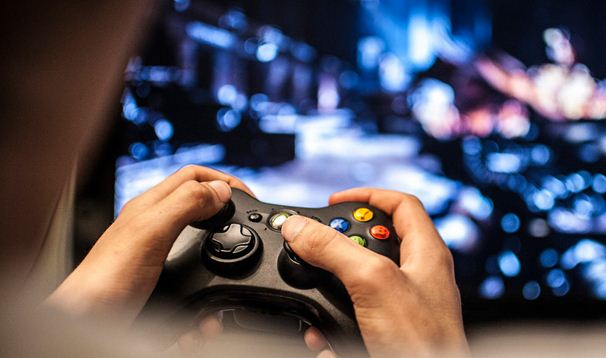Video Games and ADHD: Friends or Foes?
Kids love gaming, but does gaming love them? Video battles are tons of fun, but how much is too much? What parent hasn’t worried about how much screen time their kids are getting at some point? According to a 2016 study by the Centers for Disease Control (CDC), greater than 9% of American Children ages 2-17 have been diagnosed with ADD/ADHD (Attention Deficit Disorder with or without Hyperactivity). Canadian studies have found the rate to be 5.4% among children and youth.Regardless of the numbers, the fact remains that it’s a problem. ADD/ADHD is a multi-faceted, complex problem, so where do video games fit within the puzzle?
Parents may be relievedto learn that it has been shown that video games do not cause ADD/ADHD. There is, however, anew malady that has been identified by the American Academy of Pediatrics: IGD, or Internet Gaming Disorder, and children with ADD/ADHD can easily find themselves fitting into this category. It is a diagnosis that is being researched further, but If you know anyone who has an addiction, either substance or behavioral (gambling), then you probably know the signs: unhealthy pre-occupation with gaming; inability to stop; withdrawal symptoms such as sadness, anxiety, and irritability when it is taken away, loss of interest in other activities; using it to escape problems; compromising relationships; “closet” gaming; etc. Research shows that up to 8.5 % of kids in the United States aged 8-18 meet the criteria for IGD.
Even though it has been established that playing video games does not cause ADD/ADHD, according to psychiatrist Dr. Perry Renshaw of the University of Utah, heavy gamers are more likely to suffer fromthis or from depression. Parents sometimes wonder: if their child has this ADD/ADHD, how can he/she can sit in front of a screen and concentrate on a game so well?They can even question the diagnosis. So, why is this, and what draws these children to video gaming?
For one thing, the constant lights, sound, and action are stimulating, and the movements are so fast that they must pay attention to what they are doing in order to accomplish the goals of the game. This is where children like this are “at”. They like lots of fast-paced activity that holds their attention. Classrooms, on the other hand, are no so exciting, and their minds drift off because they are not being stimulated enough.
Sometimes children with ADD/ADHD have problems with socialization and may have low self-esteem because they are constantly getting in trouble, even though they really can’t control their impulsivity. In the game, they’re often good, and they get instant, positive feedback. They accomplish goals, which they may have difficulty doing in life. Some research even suggests that certain games, especially the shooting ones, may improve children’s spacial skills, and help to prepare them for careers in science and technology.On the other hand, the gaming verbiage with opponents can tend to be a little rough, sometimes,and this may lead to rage and worsening self-esteem.
In conclusion, even though gaming does not cause ADD/ADHD, children affected by this disorder are drawn to video games, putting them more at risk for IGD, which is unhealthy for any child. Here is a good question to ask yourself: is your child controlling the screen or is the screen controlling your child?The American Academy of Pediatrics suggests one hour of total media exposure a day for elementary age children and two hours for those in secondary schools. If your child is exceeding this, it may be time for stricter media limitations.
Comments
There are 0 comments on this post













